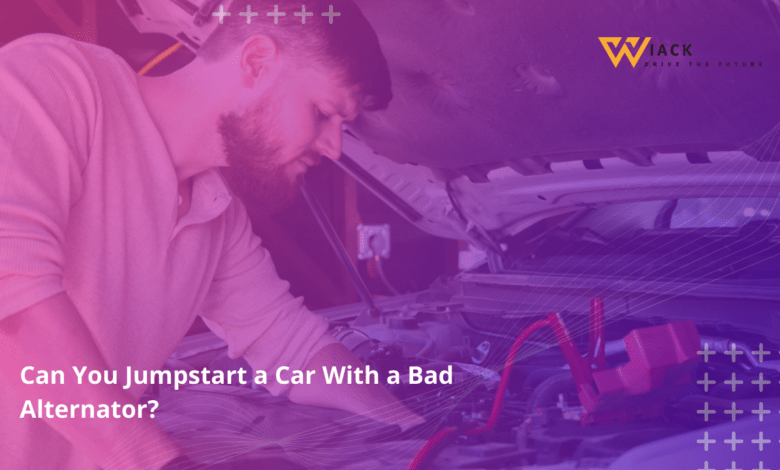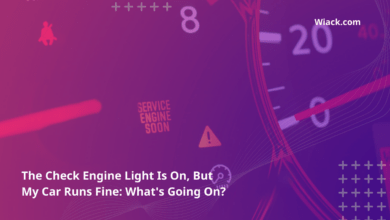Can You Jumpstart a Car With a Bad Alternator?

When your car won’t start, it’s easy to assume the battery is the culprit. However, the alternator plays a crucial role in keeping your vehicle running. Many drivers wonder if they can jumpstart a car with a bad alternator. The short answer is yes, but there are important factors to consider before attempting this.
Understanding the Alternator’s Role
Before we dive into jumpstarting a car with a faulty alternator, it’s essential to understand what an alternator does and how it impacts your vehicle’s electrical system.
What Does an Alternator Do?
The alternator is a vital component of your car’s electrical system. Its primary function is to:
- Generate electricity while the engine is running
- Recharge the car battery
- Power the vehicle’s electrical components
Think of the alternator as a mini power plant for your car. It converts mechanical energy from the engine into electrical energy through electromagnetic induction. This process involves:
- A rotor spinning inside a stator
- Magnets creating a magnetic field
- Copper windings producing electrical current
The alternator typically produces between 13.5 and 14.5 volts, which is higher than the 12 volts your car battery provides. This extra voltage ensures there’s enough power to run all electrical systems and charge the battery simultaneously.
What Happens When the Alternator Fails?
When an alternator starts to fail, it can lead to a cascade of electrical issues in your vehicle. Some common signs of a failing alternator include:
- Dimming or flickering headlights
- Dashboard warning lights (often a battery icon)
- Electrical accessories working slowly or erratically
- Strange noises coming from the engine area
- Difficulty starting the car or frequent stalling
As the alternator weakens, it can’t provide sufficient power to keep the battery charged and run all electrical systems. This situation often leads to a dead battery, which is why many people mistakenly believe they have a battery problem when the real culprit is the alternator.
Jumpstarting a Car With a Bad Alternator
Now that we understand the alternator’s role let’s address the main question: Can you jumpstart a car with a bad alternator?
Can You Jumpstart a Car With a Bad Alternator?
Yes, you can jumpstart a car with a bad alternator. However, it’s important to note that this is only a temporary solution. Jumpstarting provides enough power to start the engine, but it doesn’t fix the underlying issue of a faulty alternator.
Here’s what happens when you jumpstart a car with a bad alternator:
- The external power source (another car’s battery or a jump pack) provides enough energy to start your engine.
- Once the engine is running, it will continue to operate for a short time using the power from the jumpstart and any remaining charge in your battery.
- However, since the alternator isn’t functioning properly, it won’t recharge the battery or provide power to the electrical systems.
What Happens When You Jumpstart a Car With a Bad Alternator?
When you jumpstart a car with a faulty alternator, you’re essentially bypassing the alternator’s role temporarily. Here’s what you can expect:
- Short-term operation: The car will run for a limited time, typically anywhere from a few minutes to perhaps an hour, depending on the battery’s condition and the vehicle’s electrical demands.
- Gradual power loss: As you drive, you may notice electrical systems slowly failing. Headlights might dim, the radio could cut out, or power windows might operate sluggishly.
- Engine stalling: Eventually, the engine will stall once the battery’s charge is depleted and there’s not enough power to run the fuel injection system and ignition.
- Repeated jumpstarts: If you continue to jumpstart the car without addressing the alternator issue, you’ll find yourself needing to jumpstart more frequently.
Will Jumpstarting Damage the Battery?
Jumpstarting a car with a bad alternator won’t directly damage a healthy battery. However, it can lead to issues if done repeatedly:
- Deep discharge: Continually draining the battery without proper recharging can lead to sulfation, reducing the battery’s capacity and lifespan.
- Overworking the battery: The battery has to work harder to compensate for the alternator’s failure, which can shorten its life.
- Potential for overcharging: If the alternator is producing inconsistent voltage, it could potentially overcharge the battery, causing damage.
It’s crucial to address the alternator problem promptly to avoid these potential battery issues.
The Risks and Consequences
While jumpstarting a car with a bad alternator is possible, it comes with several risks and consequences that drivers should be aware of.
Short-Term Effects
- Unreliable transportation: Your car may stall unexpectedly, leaving you stranded.
- Electrical system failures: Critical systems like power steering or anti-lock brakes may fail while driving.
- Battery damage: Repeatedly draining the battery can shorten its lifespan.
- Increased wear on other components: The starter motor and other electrical components may work harder to compensate for the failing alternator.
Long-Term Effects
- Cumulative damage to the electrical system: Prolonged operation with a bad alternator can damage other electrical components.
- Increased repair costs: Delaying alternator replacement can lead to more extensive and expensive repairs.
- Safety risks: Driving with an unreliable electrical system poses safety hazards, especially if systems like headlights or brake lights fail.
- Decreased vehicle value: Neglecting to repair a major component like the alternator can lower your car’s resale value.
The Importance of Repairing the Alternator
Understanding why repairing or replacing a faulty alternator is crucial can help you make informed decisions about your vehicle’s maintenance.
Why You Need to Repair the Alternator
- Reliable transportation: A functioning alternator ensures your car starts and runs consistently.
- Electrical system health: It maintains the proper voltage for all electrical components, preventing premature wear or failure.
- Battery life: A good alternator keeps your battery properly charged, extending its lifespan.
- Safety: Properly functioning electrical systems are essential for safe vehicle operation.
- Cost-effective: Timely alternator repair can prevent more extensive and expensive damage to other components.
What Happens If You Don’t Repair the Alternator?
Neglecting to repair a bad alternator can lead to a host of problems:
- Frequent breakdowns: Your car will continue to have starting issues and may stall while driving.
- Electrical system failures: Various components may malfunction or fail completely.
- Battery damage: Repeated deep discharges can permanently damage the battery.
- Increased repair costs: Other components may fail due to improper voltage, leading to more extensive repairs.
- Safety hazards: Critical systems like lights, power steering, or anti-lock brakes may fail unexpectedly.
Alternatives to Jumpstarting
While jumpstarting can get you moving temporarily, it’s not a long-term solution for a bad alternator. Consider these alternatives:
Towing to a Mechanic
The safest option when dealing with a bad alternator is to have your car towed to a reputable mechanic. Benefits include:
- Professional diagnosis: A mechanic can accurately identify the problem and recommend the best course of action.
- Proper repairs: They have the tools and expertise to replace the alternator correctly.
- Safety: Avoid the risks associated with driving a car with a faulty electrical system.
- Comprehensive check: A mechanic can inspect other components that may have been affected by the failing alternator.
Replacing the Battery
While not a fix for the alternator, replacing the battery can sometimes buy you enough time to get to a mechanic safely. Consider this if:
- Your current battery is old or weak.
- You only need to drive a short distance.
- You plan to have the alternator repaired immediately after.
Remember, this is still a temporary solution and doesn’t address the root cause of the alternator problem.
Conclusion
Can You Jumpstart a Car With a Bad Alternator?
Yes, you can jumpstart a car with a bad alternator, but it’s only a short-term solution. While it may get your car running temporarily, it doesn’t address the underlying issue and can lead to further problems if not addressed promptly.
The Importance of Proper Diagnosis and Repair
Dealing with a bad alternator requires more than just a quick jumpstart. It’s crucial to:
- Recognize the signs of a failing alternator
- Have your vehicle professionally diagnosed
- Address the issue promptly to avoid further damage and ensure your safety on the road
Remember, while jumpstarting can be a useful temporary measure, it’s not a substitute for proper repair. Always prioritize your safety and the long-term health of your vehicle by addressing alternator issues as soon as they arise.
Get the latest car news, reviews, and prices at Wiack.com. Your one-stop destination for all things automotive.





